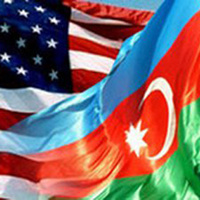Azerbaijan the Next Choice for the MKO

IRD: Was the new agreement between Iran and Iraq related to MKO issues and their extradition to Iran?
SB: If there were any negotiations on that topic they will not appear in the agreement, and extradition will not happen soon either.
IRD: What is the history behind these agreements over the opponents of the Islamic Republic in Iraq?
SB: The bilateral relations between Iran and Iraq before the revolution (and especially after it) evidently show that even though various negotiations had taken place between the two countries on the role of hostile groups in their relations, there is no official evidence of such talks except one in the 40’s (A.H) in the historical documents of Iraq.
However, it should be noted that after the Iran-Iraq war, and the fall of Saddam in 2003, Iranian officials have considered MKO issues as among the most important subject and have taken every opportunity to discuss it with Iraqi officials.
IRD: What was done after the fall of Saddam?
Within the first years after the fall of Saddam, as far as I’m aware, the MKO was never seriously discussed. After 2006, the negotiations have mainly focused on Iran’s cooperation in reconstructing Iraq in areas such as providing electricity, trade relations, border markets, dredging the Arvand river, and some of the provisions of UN Resolution 548, which ended the war between the two countries.
IRD: We have heard that the US is trying to solve the issue of Mujahidin in Iraq. Has the US taken any action yet?
In a general analysis we have to say that during the past few months, after Maleki forces attacked Camp Ashraf in northern Iraq, the issue became and will remain a very important one for Iran. The US, on the other hand, has tried to convince the Iraqi authorities to reduce pressure on the MKO. The Americans are prepared for different scenarios, one of which could be coming to an agreement with a third country to reestablish this group there.
IRD: What other third country do you mean?
SB: While Iran has had some ups and downs in its relations with neighboring countries, and especially after the replacement of Azerbaijan with Armenia in Iran’s good neighborly relations during the past four or five years; Azerbaijan has become one of the main options to host the MKO after negotiations between its officials and the US.
But in the end, I have to emphasize that due to the political-security importance of this issue in the relations of Iran and Iraq, it is very unlikely that any agreement will officially appear on paper and be recorded.

